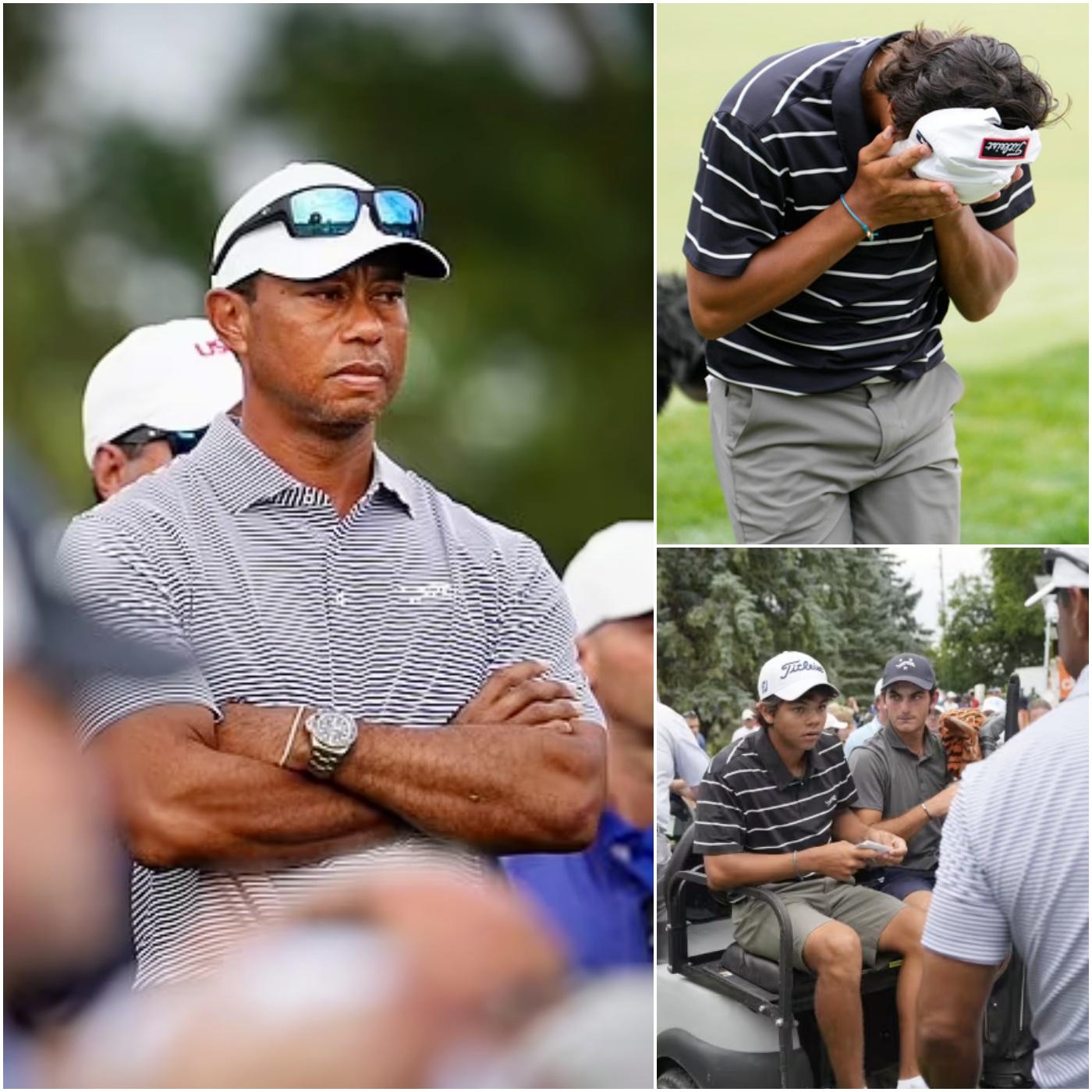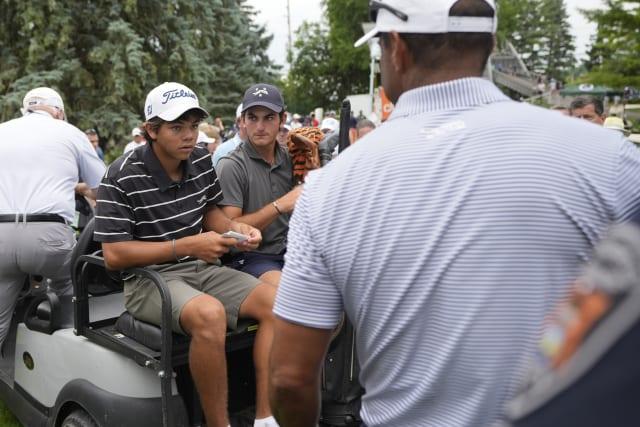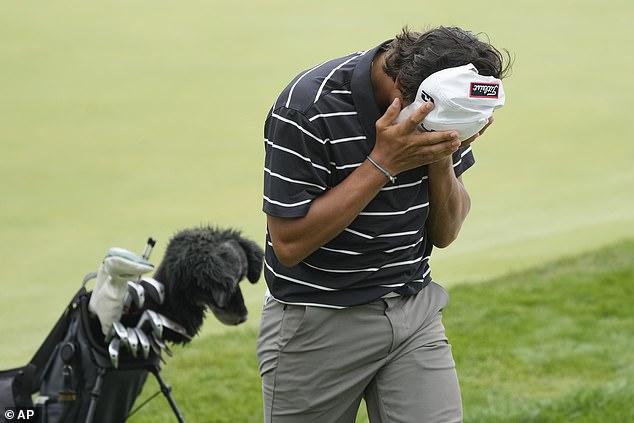Charlie Woods has faced pressures in his career that even his father Tiger Woods never experienced

Charlie Woods, the 16-year-old son of golf legend Tiger Woods, is carving out his own path in the world of golf, but the journey comes with a unique set of challenges that even his father, one of the greatest golfers of all time, never faced. While Tiger Woods dominated the sport in an era with less invasive media, Charlie is navigating a landscape where social media, camera phones, and constant public scrutiny amplify the pressures of being a young athlete under the weight of a famous last name. His recent performances, including a standout victory at the Team TaylorMade Invitational in May 2025, demonstrate his talent and resilience, but they also highlight the extraordinary expectations he faces as he steps into the spotlight.

Tiger Woods, with 82 PGA Tour wins and 15 major championships, revolutionized golf in the late 1990s and early 2000s. When he burst onto the scene, media coverage was significant but limited compared to today’s digital age. There were no smartphones recording every swing, no social media platforms dissecting every moment, and no instant viral videos to magnify mistakes or triumphs. Tiger has often reflected on this difference, noting that when he was Charlie’s age, attention was mostly “hearsay amongst neighbors.” In contrast, Charlie’s every move is captured, shared, and critiqued online, creating an environment where privacy is scarce and expectations are relentless.

Charlie’s emergence in junior golf has been impressive. His victory at the American Junior Golf Association (AJGA) event at Streamsong Resort’s Black Course, where he carded a final-round 66 to finish at 15-under-par, showcased his skill and mental toughness. Outperforming a field that included six of the top-10 ranked junior players in the nation, Charlie displayed a composure reminiscent of his father’s early days. Yet, this triumph came under the watchful eyes of fans, media, and even his father, who has been a constant presence at tournaments, often seen cheering from a golf cart or walking the fairways. Tiger’s support is unwavering, but he is acutely aware of the pressures his son faces, pressures he describes as “very different” from his own.

Tiger has been vocal about protecting Charlie from the spotlight’s intensity. “When we’re out there playing, I’m his dad, so I’m protective of him,” Tiger said in a recent interview. He emphasizes allowing Charlie to “be a kid,” urging spectators to refrain from adding pressure by filming or crowding him during tournaments. This protective stance stems from Tiger’s own experiences with fame, but he acknowledges that the modern era, with its social media and instant connectivity, presents challenges he never encountered. Fans have been known to disrupt Charlie’s game, shouting during swings or requesting autographs mid-round, adding to the already immense burden of living up to the Woods legacy.
Charlie, however, has shown remarkable resilience. His ability to bounce back from setbacks, such as missing the cut at the U.S. Open qualifiers for two consecutive years, underscores his determination. At the Team TaylorMade Invitational, he vaulted over 500 places in the AJGA rankings to No. 14, earning a spot in the prestigious Rolex Junior All-American event. His scorecard, boasting 17 birdies and an eagle over three rounds, drew comparisons to a young Jordan Spieth for its boldness and precision. Charlie’s mental discipline was evident when he remarked, “I didn’t look at the leaderboard once today,” a statement echoing the focus that propelled his father to greatness.
Despite his achievements, the comparisons to Tiger are inescapable. Golf fans and analysts often debate whether Charlie can replicate his father’s dominance, with some pointing out that Tiger was already winning every tournament he entered at a similar age. Others, like Charlie’s coach at The Benjamin School, Toby Harbeck, believe his self-critical nature could drive him to greatness if channeled correctly. Jack Nicklaus, a golfing icon himself, has advised Tiger to ensure Charlie plays for the love of the game, not external expectations. This advice resonates with Tiger’s approach, as he encourages Charlie to be his own person, stating, “He’s Charlie, not me.”
The pressure on Charlie is not just about performance but also about navigating fame in a hyper-connected world. Social media posts on X have highlighted the intensity of his experience, with one user noting the “wild adolescent experience” of playing in front of crowds while being Tiger Woods’ son. Another post praised Charlie’s ability to triumph under pressure, particularly with his father by his side, as seen during their shared moments at the PNC Championship, where Charlie made his first career hole-in-one in December 2024. These moments, filled with laughter and celebration, show a father-son bond that transcends the sport, offering Charlie a foundation to face the scrutiny.
Charlie’s journey is still in its early stages, but his talent and mental fortitude suggest a bright future. His ability to handle distractions, from disruptive fans to the weight of his father’s legacy, sets him apart. While Tiger faced his own pressures as a young prodigy, Charlie’s challenges are amplified by a digital age that leaves little room for error. Yet, with his father’s guidance and his own determination, Charlie is forging a path that is distinctly his own, proving that he is more than just the son of a legend—he is a golfer with the potential to leave his own mark on the sport.




